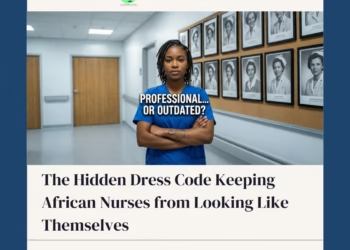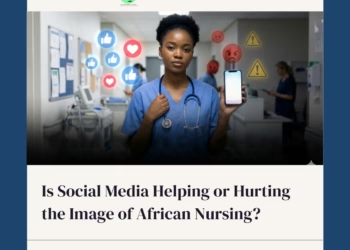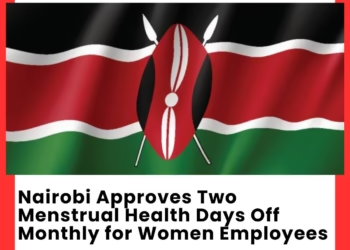 Coronaphobia Is a New Disorder Emerging From the COVID-19 Pandemic— Here’s What You Need to Know Anxiety during the pandemic is expected. But when does that anxiety become a serious condition? The COVID-19 pandemic has brought many new terms and words into our lives: learning pod, COVID bubble, and covidiot, to name a few. We can now add “coronaphobia” to that list. The researchers who helped coin the term late last year say coronaphobia is a new type of anxiety specific to COVID-19. Here’s everything you need to know about it, including how to determine if your anxiety rises to the level of this disorder and what to do if it does.
Coronaphobia Is a New Disorder Emerging From the COVID-19 Pandemic— Here’s What You Need to Know Anxiety during the pandemic is expected. But when does that anxiety become a serious condition? The COVID-19 pandemic has brought many new terms and words into our lives: learning pod, COVID bubble, and covidiot, to name a few. We can now add “coronaphobia” to that list. The researchers who helped coin the term late last year say coronaphobia is a new type of anxiety specific to COVID-19. Here’s everything you need to know about it, including how to determine if your anxiety rises to the level of this disorder and what to do if it does.
What is coronaphobia?
After analyzing nearly 500 studies that addressed the alarm and panic people were feeling during the pandemic, researchers defined coronaphobia as “an excessive triggered response of fear of contracting the virus causing COVID-19, leading to accompanied excessive concern over physiological symptoms, significant stress about personal and occupational loss, increased reassurance and safety seeking behaviors, and avoidance of public places and situations, causing marked impairment in daily life functioning.”  The researchers listed several factors that can lead to coronaphobia. These include wallowing in all the uncertainties that come with the pandemic (like whether you’ll get COVID-19, or if your paycheck is in jeopardy), adopting new practices and avoidance behavior, and the anxiety that can develop when you hear about world leaders and famous celebrities who have contracted the virus. Una McCann, MD, professor of psychiatry at the Johns Hopkins School of Medicine and director of its Anxiety Disorders Program, tells Health that “anxiety is a normal, healthy reaction to dangerous things.” And, she explains, it’s a response that anyone can develop during times of stress. To say that the pandemic has been stressful would be quite the understatement; research has shown that COVID-19-related worries have led to greater levels of anxiety. But how can you tell whether your or someone else’s anxiety is a normal, healthy reaction to the pandemic or falls under the criteria for coronaphobia?
The researchers listed several factors that can lead to coronaphobia. These include wallowing in all the uncertainties that come with the pandemic (like whether you’ll get COVID-19, or if your paycheck is in jeopardy), adopting new practices and avoidance behavior, and the anxiety that can develop when you hear about world leaders and famous celebrities who have contracted the virus. Una McCann, MD, professor of psychiatry at the Johns Hopkins School of Medicine and director of its Anxiety Disorders Program, tells Health that “anxiety is a normal, healthy reaction to dangerous things.” And, she explains, it’s a response that anyone can develop during times of stress. To say that the pandemic has been stressful would be quite the understatement; research has shown that COVID-19-related worries have led to greater levels of anxiety. But how can you tell whether your or someone else’s anxiety is a normal, healthy reaction to the pandemic or falls under the criteria for coronaphobia?
Coronaphobia or regular anxiety: how to tell the difference
Lily Brown, PhD, director of the Center for the Treatment and Study of Anxiety at the University of Pennsylvania, tells Health that many people wonder if their anxiety level about COVID-19 is normal or if they’re too worried about the virus. To help them figure it out, she tells patients to use their pandemic behavior as a marker. “Essentially, are you able to do the things that you need to do to live a relatively fulfilled life? Are you able to connect with people? Are you able to get your groceries for the week? Are you able to fulfill the duties of your job if you’ve been able to maintain employment?” Brown says. “Oftentimes, what happens when people have anxiety disorders is their anxiety starts to spill over so that it increasingly becomes more and more challenging to follow through on their obligations and get their needs met.” Again, most people are feeling anxiety during the pandemic. But if you start noticing that you’re having a hard time meeting your commitments or completing must-do tasks because you’re panicked about catching the virus (or worried that loved ones will get sick), these might be indications that you have coronaphobia—and professional support to help in manage the anxiety could be effective, Brown says.
Who is most at risk?
Brown’s research showed that, on average, women are reporting more anxiety than men during the pandemic. This is for a variety of reasons, including the fact that women said they have greater anxiety than men about family members getting sick, or that they themselves will inadvertently spread the virus. Brown also found that younger people have been experiencing an increase in anxiety—not just because of the virus itself but due to the uncertain effect the pandemic can have on their future. “[These groups] in particular should really be on the lookout for whether they start to experience any of that functional impairment,” she says. “And if they are, it may be good to reach out for additional support.” Spending more time on social media —and consuming more media, in general— may also increase anxiety levels about the pandemic. “That doesn’t mean avoid it altogether,” Brown advises. “It just means that you would want to limit the amount of time you engage with it, not constantly checking in to see what the latest outrageous news is or what the latest social media battle is about.” 
How to manage anxiety during the pandemic
Decades of research shows that cognitive behavioral therapy (CBT) can effectively treat anxiety. Brown suggests searching the term with your zip code to find providers near you. Or now that more clinicians are using telehealth, you can find a doctor or therapist specializing in CBT who isn’t in your immediate area but can see you virtually. The CDC also offers ways to cope with stress during the pandemic, including taking care of your physical health, setting time aside to unwind, and connecting with others as well as community- or faith-based organizations. Taking care of both your mental and physical health during the pandemic is vital—and both are equally as important. “I think this is really confusing for people, and people have received mixed messages about this, including messages where people are inadvertently told that their anxiety is more a problem than the virus itself, and I think that’s really problematic messaging because there certainly is a real threat there with the virus,” Brown says. By Colleen Murphy February 09, 2021. Culled from health.com









